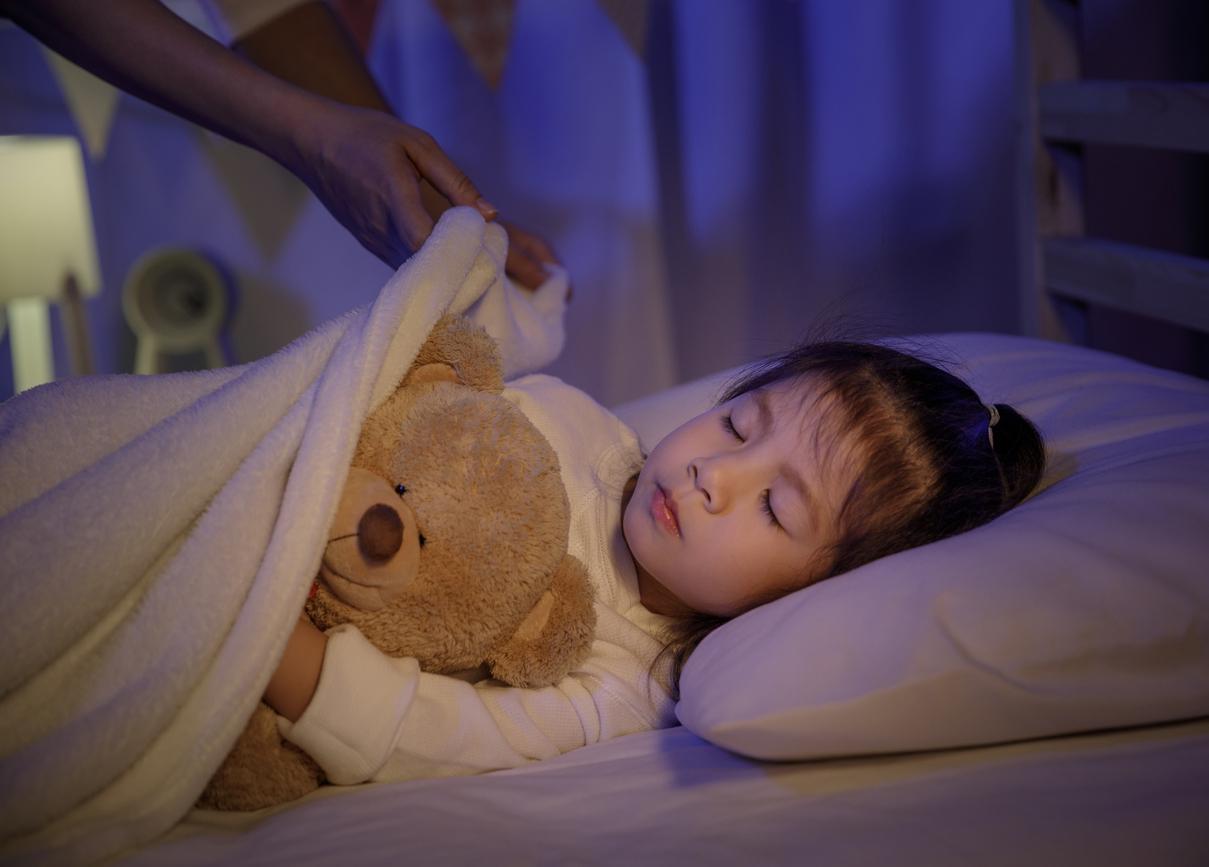Contact with dogs improves sleep for people suffering from post-traumatic stress disorder (PTSD).

- Contact with a dog can lower the heart rate and therefore have positive effects on sleep in people with post-traumatic stress disorder (PTSD).
- Indeed, for sleep to be restorative, the heart rate must drop to the lower part of the individual’s normal (which varies depending on each person).
- This effect was found to be more pronounced in participants with more severe PTSD symptoms.
According to a new search, Contact with a dog can lower heart rate and therefore have positive effects on sleep in people with post-traumatic stress disorder (PTSD). Indeed, for sleep to be restorative, the heart rate must go down in the lower part of the individual’s normal (which varies depending on each person).
Post-traumatic stress disorder: the sleep of 45 veterans studied
The study involved 45 U.S. military veterans who were receiving treatment for PTSD. These veterans, mainly from the wars in Iraq and Afghanistan, were aged 25 to 71. During their healing stay, participants received training to train service dogs in collaboration with the nonprofit organization Paws for Purple Hearts and then shared time with the animals in their room.
Researchers assessed the severity and frequency of PTSD symptoms using clinical interviews and questionnaires. To monitor participants’ heart rates while they slept, they used mattress actigraphy, collecting data for 24 nights.
Post-traumatic stress disorder and sleep: the role of heart rate
Study results revealed that 70% of participants suffered from major depressive disorder, 61% from alcohol use disorder, 30% from substance abuse, and 76% from overweight or obesity.
The presence of the service dog did not affect the time participants fell asleep, nor the amount of time they spent sleeping. Heart rate during sleep tended to increase as the study progressed across the entire cohort. However, this gradual increase was much smaller for nights when participants were with a dog. This effect was found to be more pronounced in participants with more severe PTSD symptoms.

Post-traumatic stress disorder and sleep: reduced risk of cardiovascular disease
Improving sleep can also help people with PTSD reduce their risk of cardiovascular disease.
It is important to emphasize that these results need to be confirmed with additional research and that contact with a service dog cannot be considered a one-size-fits-all solution for PTSD. Nevertheless, this study highlights the importance of non-pharmacological interventions in the management of tpost-traumatic stress ruble and opens the way to new possibilities in this area.
“Post-traumatic stress disorder is a form of mental pathology which occurs in a person in contact with a traumatic event (unexpected death, sexual assault, attack, cataclysm, serious accident, attack on integrity). The event in question leads to post-traumatic stress disorder if several symptoms persist after a period of one month”explained recently to Why doctor the neuropsychologist Francis Eustache.
















